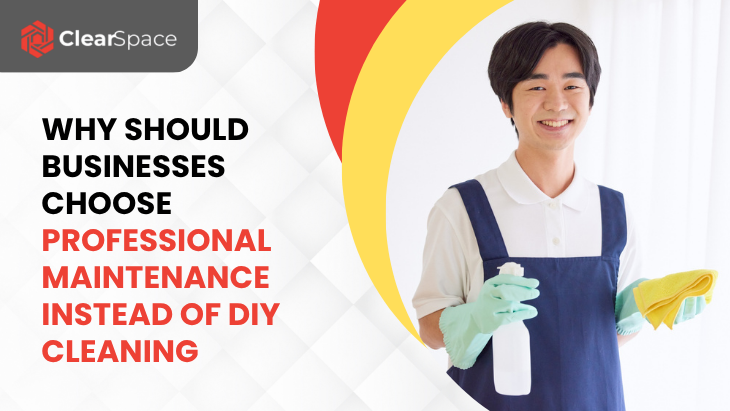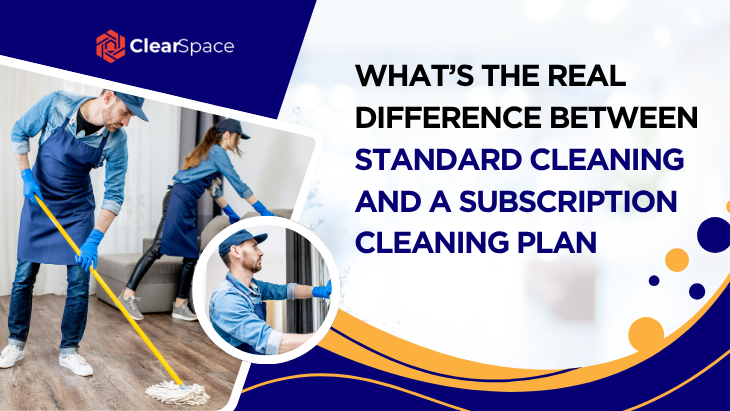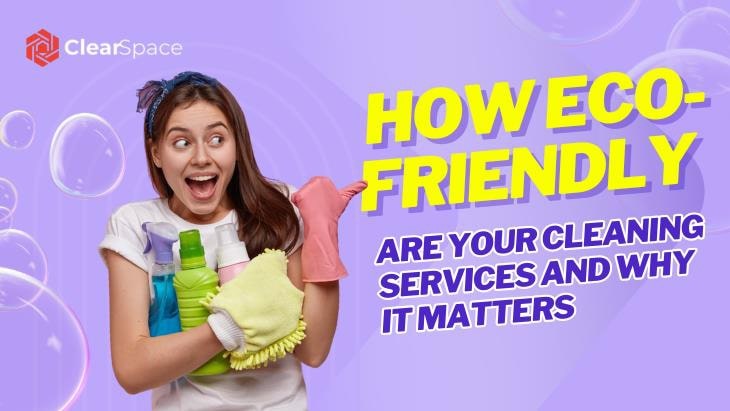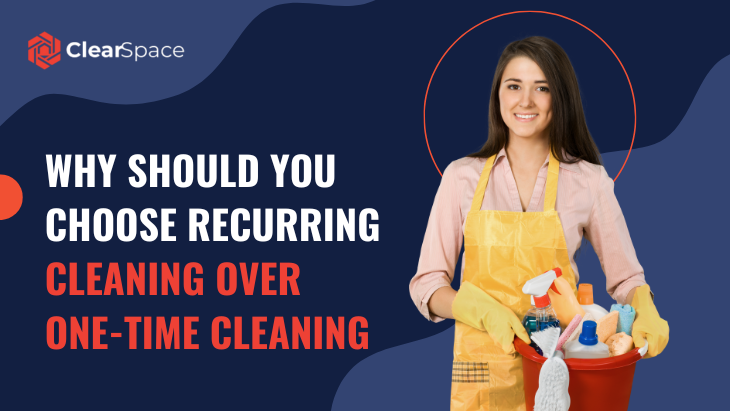Introduction
In the fast-paced and competitive corporate world of today, cleanliness and upkeep of a working environment are much more than cosmetic issues: Cleaning & Device Repair Services. They are a mirror of professionalism, efficiency, and workers' health. It may be a small office, a retail store, or an enterprise building, but cleanliness is an essential part of creating a company's reputation and efficiency. Most companies, particularly small or medium-sized ones, tend to wrestle with the option of whether to hire the services of professional cleaning and maintenance companies or to use in-house employees for do-it-yourself (DIY) cleaning.
Although DIY cleaning might seem less costly on the surface, it tends to be expensive in the long run due to concealed costs, variable quality, and health and safety hazards. Professional maintenance, however, provides a thorough, effective, and consistent method of workplace cleanliness. With trained personnel, specialized machines, and regular cleaning procedures, professional services not only ensure cleanliness but also support business performance. The difference between DIY cleaning and professional maintenance is not about who gets to do the job it's about quality, long-term cost savings, and maintaining a professional environment.
Professional Maintenance: A Strategic Investment, Not an Expense
One of the reasons why companies are reluctant to outsource professional cleaning services is perceived cost. Most feel that it will cost them less to have it done in-house. But in the long run, it will cost them more. Professional maintenance needs to be viewed as an investment instead of an expenditure.
Professional cleaning agencies provide skills, sophisticated equipment, and effective cleaning techniques that yield better outcomes in fewer hours. Staff members who try to clean their own office area may lack the appropriate equipment or skills to work on various surfaces, sanitation requirements, or waste disposal effectively. It might end up as an incomplete job or even destruction of property, e.g., floors, furniture, or office equipment.
Furthermore, employees' time used for cleaning is time diverted from their actual work functions. For instance, if support staff spend one hour weekly on cleaning, that's time deducted from productivity. These hours, overtime, result in quantifiable cost loss. By contrast, hiring professional cleaners enables employees to dedicate themselves fully to their core jobs while leaving the space immaculate and safe.
Expertise and Training: The Heart of Professional Maintenance
One of the greatest strengths of professional maintenance companies is the expertise and training their personnel are given. Cleaning is not merely wiping down surfaces or disposing of trash cans—it involves understanding cleaning chemicals, surface materials, and disinfecting procedures. Professionals learn to apply specialized chemicals on various materials like glass, wood, carpet, or stainless steel without damaging them.
Additionally, professional cleaners adhere to industry guidelines and health codes. Sanitizing and disinfecting have become essential elements of workplace upkeep in the post-pandemic age. Professional cleaning squads know how to thoroughly destroy bacteria, viruses, and allergens, providing a safe and healthy working environment. DIY cleaning tends to overlook these kinds of details and uses generic chemicals that might not have a complete disinfection effect on surfaces or eradicate injurious pathogens.
Professional cleaning businesses also remain in touch with changing best practices, environmental laws, and product safety guidelines. This allows enterprises not just to get a cleaned-up facility but one preserved using the best and most environmentally friendly methods in place.
Consistency and Reliability in Results
One of the biggest problems with DIY cleaning is that it can lead to inconsistencies. Staff members might clean unevenly or avoid cleaning altogether during times of heavy workload. This leaves cleanliness and hygiene standards to fluctuate, which has the potential to damage staff morale and customer perceptions.
Expert maintenance crews, though, work on set schedules and set procedures. They make sure that cleaning is done regularly, be it daily, weekly, or monthly. They methodically cover all areas from workstations and restrooms to meeting rooms and touch points, leaving no corner untouched.
Reliability is another critical advantage. Companies can rely on expert services to provide quality cleaning without reminders or supervision. Such consistency not only enhances the look of the workplace but also instills a sense of order and discipline that speaks volumes about the company culture.
Health, Safety, and Employee Well-Being
Cleanliness is highly related to health, and office health equals productivity. An untidy workplace can have dust, allergens, and microbes present, causing frequent absences and illness among workers. Do-it-yourself cleaning seldom targets deep cleaning needs or high-risk areas like carpets, ventilation systems, or break rooms.
Commercial cleaning services, however, use industrial-grade cleansers, air purifiers, and cleaning machines to remove dust, mold, and germs. They also meet Occupational Safety and Health Administration (OSHA) standards to make sure that cleaning chemicals and procedures do not pose threats to employees or guests.
By spending money on professional maintenance, companies show their employees that they care about their well-being. This doesn't just enhance morale but also decreases sick time and increases overall productivity. A healthy and clean working environment results in happy, productive employees who are proud to work there.
Improving Professional Image and Client Perception
Initial impressions are strong in business. A customer or potential business partner walking into a clean, tidy office instantly makes the association that the firm is professional, detail-oriented, and dependable. Conversely, dusty surfaces, dirty bathrooms, or messy areas send subliminal messages of negligence or lack of organization.
Professional cleaning services guarantee each and every visible (and intangible) area of the workspace is clean. Floors are polished, windows are sparkly, and furniture is newly cleaned—creating a landscape that shows expertise and attention to detail. This presentation quality can affect customer trust and even business or sales opportunities.
DIY cleaning, on the other hand, usually is less thorough and refined than what the professionals provide. Gradually, minor lapses like streaked glass, soiled carpets, or unmaintained bathrooms can taint a firm's image. Professional maintenance ensures an unvaryingly positive impression that reinforces brand credibility.
Access to Advanced Equipment and Cleaning Technology
Professional cleaning companies invest heavily in advanced equipment and innovative cleaning technologies that most businesses cannot afford or maintain independently. These include industrial vacuum systems, steam cleaners, floor scrubbers, and eco-friendly cleaning machines designed for efficiency and precision.
These devices not only enhance the quality of cleaning but also efficiency since they clean large spaces in a short time. Most professional service providers also employ HEPA-filter vacuums that capture fine dust, providing a healthy air environment indoors. Additionally, green products and smart cleaning technologies minimize energy and water wastage, making maintenance sustainable and eco-friendly.
DIY cleaning tends to rely on common household equipment and off-the-shelf chemicals that do not have the strength and accuracy of professional cleaning equipment. Consequently, even where someone has the best of motives, DIY cleaning cannot compete with the penetration and longevity of a professional clean.
Compliance with Hygiene Regulations and Standards
Depending on the type of business, there are certain safety and hygiene regulations to be complied with—particularly in healthcare, hospitality, food preparation, and manufacturing. Failure to comply can mean fines, lawsuits, or loss of reputation.
Professional cleaning service providers are aware of such regulations and make sure that cleaning procedures adhere to them. They keep comprehensive logs, comply with safety data sheets (SDS), and employ authorized cleansing agents appropriate for particular environments. Companies dealing with sensitive materials or working in highly regulated industries can benefit significantly from this.
Contrarily, workers who do their own cleaning might not be apprised of such standards or how to deal with cleaning chemicals safely. That can result in infringement, mishap, or inefficient sanitizing.
Cost Effectiveness over the Long Term
While DIY cleaning may seem to be a money-saver in the short run, it can prove expensive in the long run as a result of underlying costs like equipment buying, cleaning products, training, and lost time. Further, incorrect cleaning procedures can generate damage that may need costly repair or replacement for instance, scratched floors, stained carpets, or corroded surfaces.
Professional maintenance removes these hazards with skill and expertise. Recurrent upkeep avoids long-term asset deterioration, giving office furniture, flooring, and fixtures a longer lifespan. Most cleaning businesses also have adjustable pricing schemes that enable businesses to choose packages within their budget without compromising quality of service.
Considering saved time, enhanced employee productivity, and cost savings on replacements, professional maintenance is usually more cost-effective than home cleaning.
Sustainability and Green Practices
Contemporary companies are more concerned with sustainability and corporate social responsibility. Professional maintenance firms are at the forefront here by introducing green cleaning practices with minimal environmental damage.
They employ biodegradable cleaning products, energy-saving equipment, and water-efficient methods. Others even recycle waste and supply documentation for companies' sustainability reports. Utilizing such services enables companies to integrate their maintenance strategy with environmental principles, which attract environmentally friendly customers and employees.
DIY maintenance, on the other hand, tends to use aggressive chemicals and throwaway materials, which hurt both people and the environment. Professional upkeep makes sure that cleanliness doesn't compromise sustainability.
Minimizing Liability and Maintaining Safety
Workplace safety is an ethical and legal obligation. DIY cleaning raises the risk of accidents in the form of slips, chemical burns, or improper waste removal particularly when carried out by untrained personnel. These accidents may result in liability suits and employee compensation expenditures.
Professional cleaning services are insured, licensed, and trained in the handling of hazardous materials. They follow safety protocols that avoid workplace accidents and minimize business liability. By outsourcing cleaning duties, employers safeguard both their employees and their reputations.
Conclusion
ClearSpace Choosing between DIY cleaning and professional maintenance is ultimately a matter of how much a business holds its time, people, and reputation in esteem. Even if DIY cleaning appears cheap or convenient at first, it usually sacrifices quality, efficiency, and safety. Professional maintenance, however, provides a cleaner, healthier, and more professional work environment that boosts productivity and business credibility.
Professional services offer qualified experience, repeatable outcomes, compliance with regulations, and access to high-tech cleaning equipment all of which lead to long-term cost savings and operational efficiency. Most importantly, having employees outsource cleaning duties frees them up to concentrate on their core job without interruption.
In today's business world, where sanitation is synonymous with health, trust, and productivity, professional upkeep is no longer an extravagance it's a requirement. Selecting professional cleaning is not so much about having a clean environment as it is about cultivating a productive, ecologically friendly, and successful work environment that best characterizes the organization.





Leave a reply